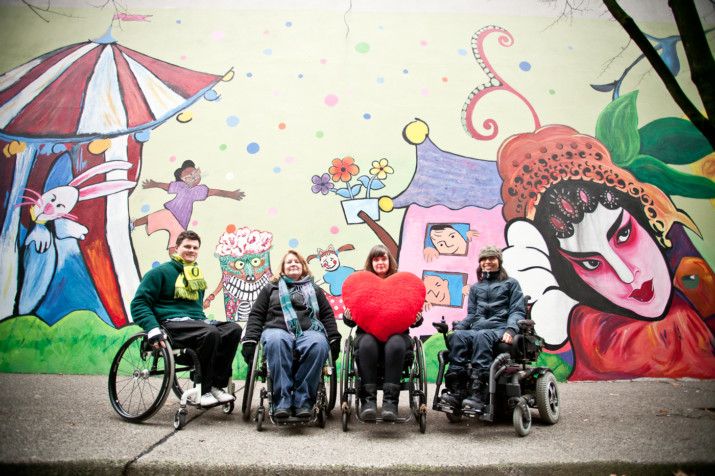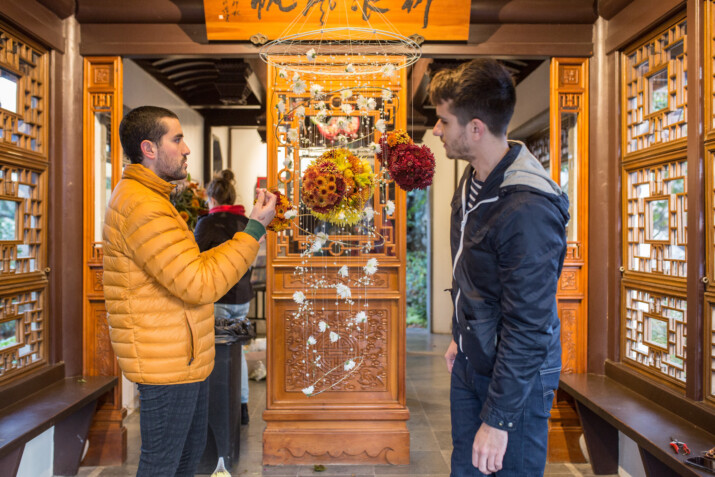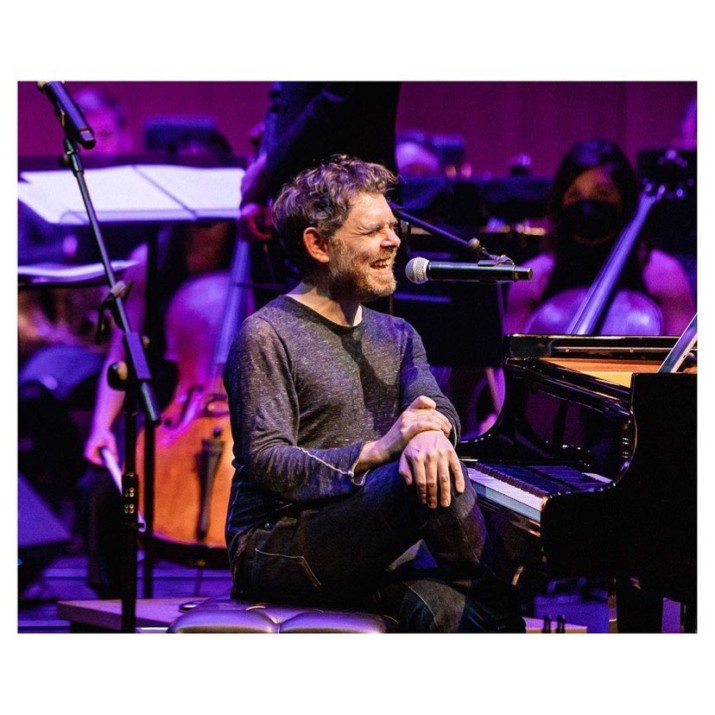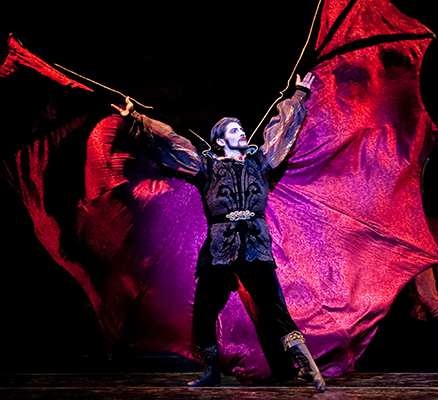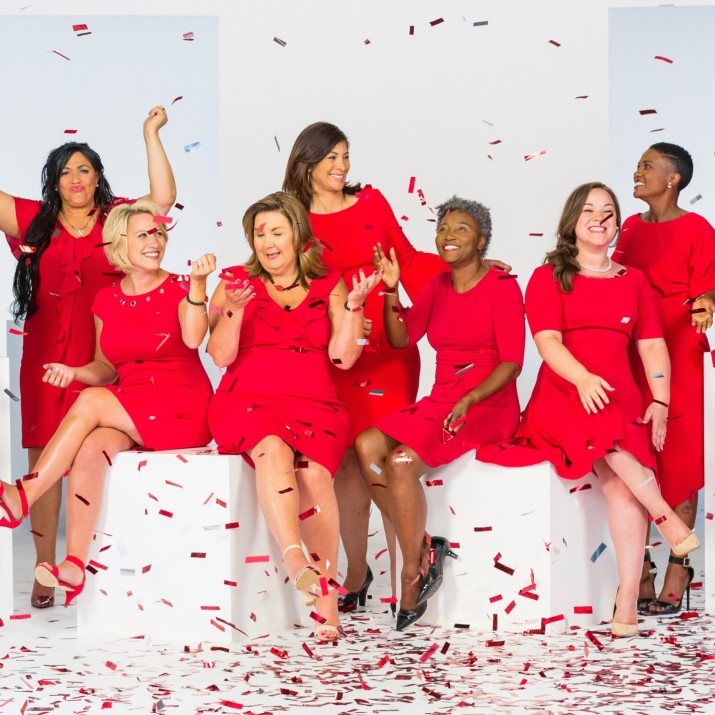Portland, OR. Unlike many nonprofits, online operations are no new challenge for BACKBONES. This organization provides support and education for people with spinal cord injury or disease (SCI/D). In-person meetups like that pictured above have been replaced by monthly peer-to-peer chats. The BACKBONES team already worked remotely, according to Executive Director Reveca Torres. They have successfully continued their online-based leadership program and boosted attendance for their monthly virtual meet-up group PeerConnect.
PeerConnect provides a space for people with SCI/D to take their minds off their worries and build relationships. Program Coordinator Shannon Kelly chooses conversational topics and activities for the group. Lately, numbers have grown. “At first, it was just a few people, and now we’ve had a consistent number of attendees,” says Torres. On September 19th, PeerConnect will host a discussion on managing mental health during COVID.
The BACKBONES Leaders Program also took place over video call pre-pandemic. As a result, social distancing and shelter-in-place orders were not major obstacles. The Leaders Program prepares individuals with SCI/D to advocate for others, be civically aware, and serve as role models. On October 22nd, BACKBONES will host a virtual celebration of this year’s participants and discuss plans for next year.
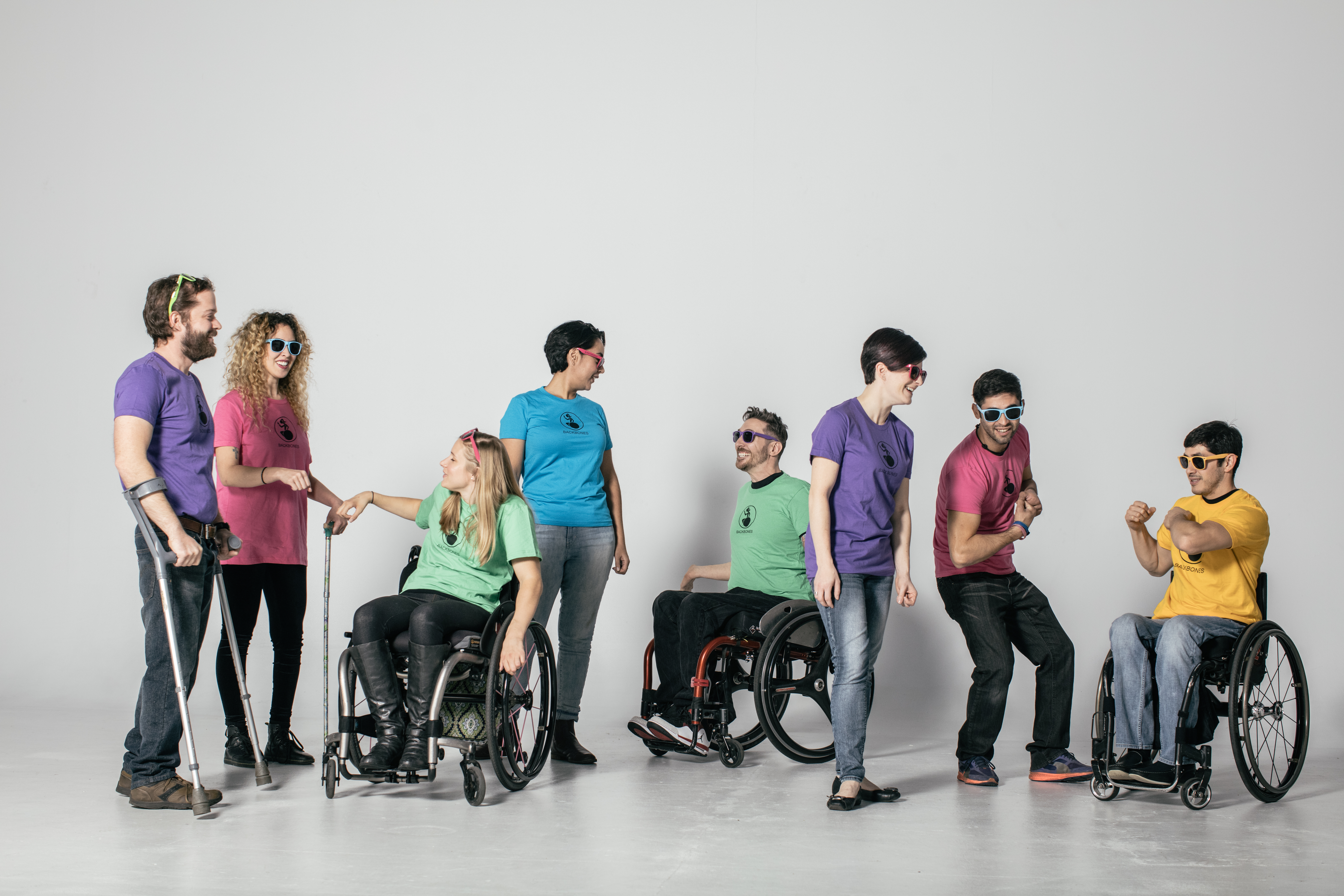
Before the pandemic, backbones created events and experiences that promote awareness and engage people of all abilities.
Despite BACKBONES’s preparedness, COVID did introduce new challenges for the organization. Many have turned to BACKBONES for help managing their healthcare mid-pandemic: for example, providing protective equipment for in-home caregivers. The nonprofit’s board had to cancel some in-person events. Economic hardships have made donations slow down. Also, some in the SCI/D community also feel an added layer of anxiety due to talks of ‘medical rationing.’ “Society doesn’t see disabled lives as valuable often,” Torres explains. “There’s this fear that, if it comes to rationing medical care, that people with disabilities would be at the bottom of that.”
Discussions of bias in medicine and disability rights intertwine with subjects like racism and policing. The Black Lives Matter movement continues to shed light on these topics and encourage solidarity between marginalized groups. “It’s been nice to see that disabled voices have been included. A large number of people with disabilities are victims of police brutality,” says Torres, citing officers’ frequent inability to communicate with autistic, deaf, and mentally ill people.
However, the intersection between racial justice and disabled rights gives Torres hope. According to her: “Everything that’s going on — with COVID, with BLM, with all the issues really — it’s bringing to the surface different issues we all face at the same time and if we work together we can make change in a more efficient way.”
From BACKBONES’s website: BACKBONES exists to help people with spinal cord injury or disease (SCI/D) and their families connect with their communities. We do that by creating events and experiences that promote awareness and engage people of all abilities.
BACKBONES was born when friends and family of Reveca Torres started a fundraising campaign in order to help pay for medical expenses after a spinal cord injury. Surrounded by great people, Reveca realized the importance of a support system to help reach one’s goals after an injury and the impact others with similar injuries had — they provided motivation and confidence that couldn’t be found elsewhere.
With the support and guidance of so many, Reveca Torres and co-founders Veronica Gott, Patricia Mikicic and Annie Gonzalez put a long-time goal into motion and transformed BACKBONES into what it is today: a place to connect with others with the purpose of learning, teaching, and sharing.


